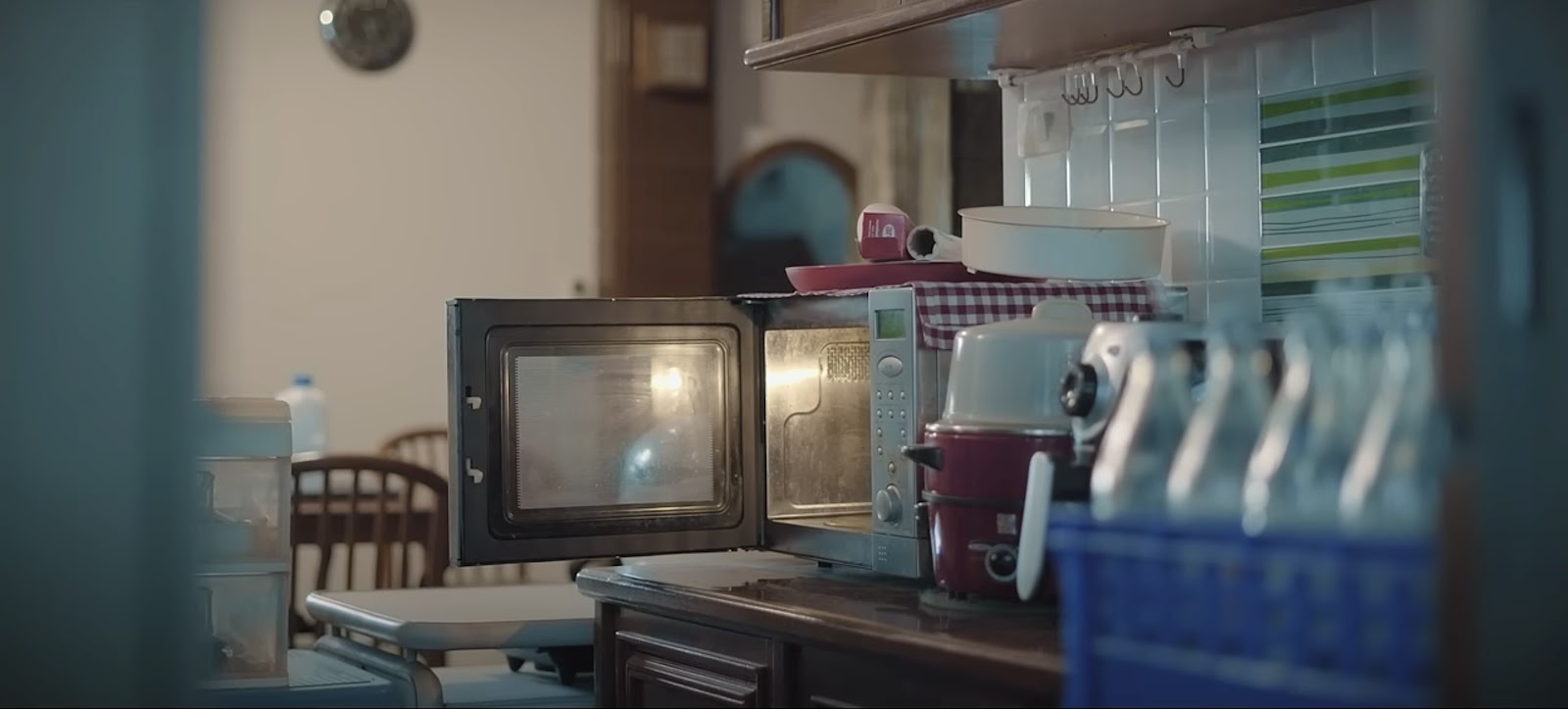'Operator' (2015)
Coursework 4
Operator explores themes of communication, connection and experiences particularly through its narrative choices.
The narrative occurs in real-time creating an immersive experience for the spectator evoking strong emotional connections between the spectator and the characters. The linear and simple structure of the narrative emphasises the immediacy of the phone calls an operator receives and the urgency and weight of events. The balance between the operator’s professional persona and the effect her job has on her emotionally, as hinted to through subtle visual cues and the film’s pace, highlight the internal conflicts present in the character. The silence after the phone call has ended highlights the emotional weight of the call and makes the spectator aware of the operator’s inner conflict and empathy for the caller but also how her job affects her as a person. The discourse of internal conflict and identity is similar to both ‘The Fly’ and ‘Echo’ which both reflect on these themes but each present them in different and unique ways. The narrative in a sense becomes cyclical as she goes on to answer another call showing the relentless nature of the job. This is similar to ‘Echo’ which also uses a cyclical narrative but to reflect the relentless nature of grief.
Operator’s effective use of cinematography, sound and editing further enhance the narrative. The cinematography utilises close ups and medium shots to capture her reactions and invite the spectator into the mind of the operator. The camera often lingers on the operator’s face emphasising the emotional burden created from the job. The intimacy created between the camera and the operator allow for the spectator to see her internal struggle and empathise with the character. The close-up shots which frame her make her the focus and the silence during certain moments in the film isolates her in the narrative which is also done in ‘The Fly’ and ‘Echo’.
The ambient noise of the operator’s surroundings deeply contrasts the imitate and painful conversations that are happening on the phone. The J-sound at the start, the repetitive ringing of phones and the muffled overlapping chatter of her co-workers create a rich auditory tapestry that immerses the spectator while also reminding them that most of them have or will experience phone calls similar to the one we are hearing. The sound enhances the realism of the setting making the operator’s call feel more profound. Similarly to ‘Over’, ‘Operator’ is based off real events, an actual 999 call that the director found very distressing adding greater depth to the narrative. It praises operators on how they remain calm and professional during tense and stressful situations.
The pacing of ‘Operator’ is deliberately slow which allows for the spectator to reflect on the weight of the interaction. The editing is slow rather than choppy which differs from ‘The Fly’, which ‘Operator’ is most similar to. The simplistic editing is effective as it allows for a more realistic and humble narrative as it allows for the focus to remain purely on the operator’s facial expressions rather than making it a tense drama through dramatic editing. It allows for tension to be created through sound creating a sense of continuity which allows for the spectator to engage with the overall themes of connection within isolation.
The lighting in ‘Operator’ is minimal allowing the camera to capture the shadows on screen and also assisting the overall dark colour palette of the film. The low lighting adds to the dramatic undercurrents of the circumstances. The darkness surrounding the operator could be a metaphor for the darkness of the tragic situations that they deal with and the light reflecting on their faces from their bright screens could be a symbol of help and hope. The darkness that surrounds the operator could also reflect the depressing and upsetting nature of her job and how it affects her personally.
‘Operator’ creates tension without showing a single shot of fire, ‘The Fly’ does this also when it implies the bank robbery which remains unseen to the spectator. This shows that showing these big climatic and extravagant moments doesn’t necessarily add anything to the narrative and tension can still be created without it, instead, it allows for a deeper focus on character and emotion. The narratives are often driven by the internal conflicts of the characters. The film’s minimalist approach showcases the power of emotion and that impactful stories can be created with limited resources and a short time span.



Like 'Operator' itself you don't make the slightest mis-step here in a brilliant analysis and comparison. Well done
ReplyDelete